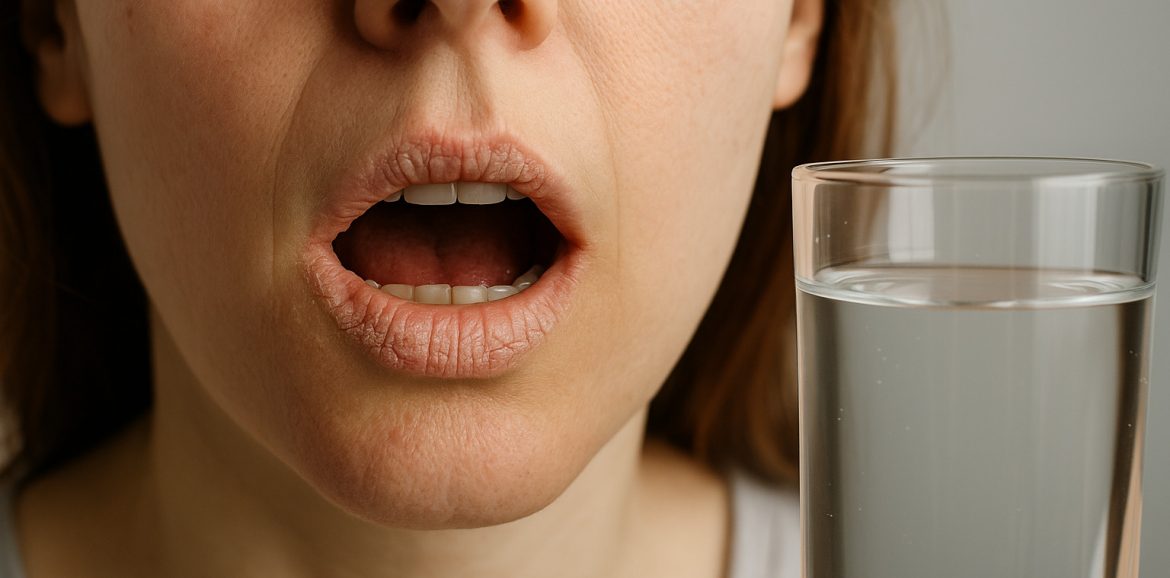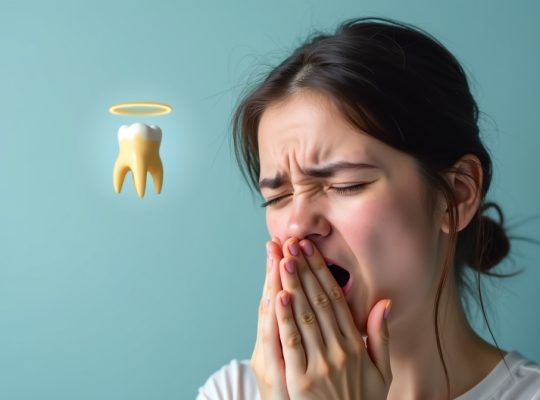Dry mouth, medically known as xerostomia, isn’t just uncomfortable—it can lead to real dental problems. It occurs when the salivary glands don’t produce enough saliva to keep the mouth moist. Without enough saliva, chewing, swallowing, tasting, and even speaking become difficult. Worse, the lack of natural lubrication allows bacteria to thrive, increasing the risk of cavities and gum disease. Understanding what leads to this condition is the first step toward finding real, practical solutions.
Common Causes of Dry Mouth
1. Medications
Prescription and over-the-counter drugs top the list. Many medications list dry mouth as a side effect, especially those used for:
- Allergies and colds (antihistamines and decongestants)
- Depression and anxiety (antidepressants)
- High blood pressure (diuretics and beta-blockers)
- Pain relief (certain opioids)
- Muscle control (muscle relaxants)
2. Medical Conditions
Several systemic health issues affect saliva production:
- Diabetes: High blood sugar levels reduce salivary flow.
- Autoimmune diseases: Conditions like Sjögren’s syndrome and lupus often impair salivary glands.
- HIV/AIDS: Can alter gland function.
- Alzheimer’s and Parkinson’s: Affect nerves controlling salivation.
- Stroke: May impair sensation, making it feel like the mouth is dry even with normal saliva levels.
3. Cancer Treatment
Radiation therapy to the head or neck can permanently damage salivary glands. Chemotherapy, while not usually permanent, also reduces saliva temporarily.
4. Nerve Damage
Injury to the head or neck during surgery or trauma can interfere with signals that trigger salivation.
5. Lifestyle Habits
- Smoking or vaping: Decreases saliva flow and irritates the mouth lining.
- Alcohol consumption: Found in drinks and mouthwashes, alcohol dries the oral tissues.
- Caffeine: Acts as a diuretic, subtly reducing moisture.
- Mouth breathing: Whether from nasal congestion or habit, breathing through the mouth contributes to dryness.
Symptoms You Shouldn’t Ignore
Dry mouth is more than just a parched feeling. Symptoms include:
- Sticky, stringy saliva
- Bad breath
- Difficulty speaking or swallowing
- A dry or sore throat
- Changes in taste
- Cracked lips or corners of the mouth
- Burning sensation on the tongue
- Frequent thirst
- Trouble wearing dentures
These signs often worsen at night or during long conversations.
Consequences of Untreated Dry Mouth
Letting dry mouth persist without action can lead to:
- Tooth decay
- Gum disease
- Mouth sores
- Oral infections like thrush
- Difficulty chewing and swallowing
- Malnutrition in severe cases
Saliva isn’t just for comfort—it neutralizes acids, washes away food, and delivers minerals like calcium and phosphate to teeth. Without it, your entire oral ecosystem suffers.
How to Fix Dry Mouth: Proven Strategies
1. Stay Hydrated—But Do It Right
Water should be your constant companion. Sip frequently, especially before speaking or eating. Avoid carbonated or acidic drinks which irritate dry tissues.
2. Stimulate Saliva Production
Use sugar-free chewing gum or lozenges that contain xylitol. These trigger your salivary glands naturally. Chewing also boosts circulation, supporting gland activity.
3. Rethink Your Medications
If medication is the root cause, talk to your healthcare provider about alternatives or dosage adjustments. Never stop or alter prescribed drugs without professional guidance.
4. Go Alcohol-Free
Switch to alcohol-free mouthwashes. Look for products labeled for dry mouth or containing moisturizing agents like glycerin or aloe.
5. Avoid Drying Substances
Cut back on caffeine. Limit spicy and salty foods that exacerbate dryness. If you smoke, this is one more reason to quit.
6. Use a Humidifier at Night
Running a cool-mist humidifier while you sleep keeps the air moist and reduces overnight mouth dryness, especially if you breathe through your mouth.
7. Try Saliva Substitutes
Pharmacies carry over-the-counter saliva substitutes and oral moisturizers. Some offer temporary relief by mimicking the texture and function of real saliva.
8. Maintain Rigorous Oral Hygiene
Brush with fluoride toothpaste designed for dry mouth. Use a soft-bristled brush to avoid irritation. Floss daily to prevent bacteria buildup.
9. Monitor Your Diet
Avoid sugary foods that increase the risk of tooth decay. Incorporate moist foods like soups, stews, and yogurt. Sour flavors may help stimulate saliva—try sugar-free lemon drops or apple slices.
10. Address Underlying Conditions
If diabetes, autoimmune disease, or nerve damage is involved, managing the root issue can indirectly improve salivary function.
When to See a Professional
If dry mouth persists for more than a few days, or interferes with eating, speaking, or sleeping, it’s time to consult a dental hygienist or oral health therapist. A thorough exam may reveal underlying issues requiring treatment. Dental professionals can:
- Check for cavities and gum inflammation
- Recommend prescription salivary stimulants or fluoride treatments
- Suggest tailored oral care routines based on your specific needs
- Collaborate with your GP to assess possible medication changes
Final Thought
Dry mouth isn’t a standalone nuisance—it’s a sign your oral health needs attention. With awareness and simple changes, you can restore balance, prevent complications, and improve comfort. Don’t wait until it affects your smile or your meals. Pay attention to what your mouth is telling you—and act on it.






